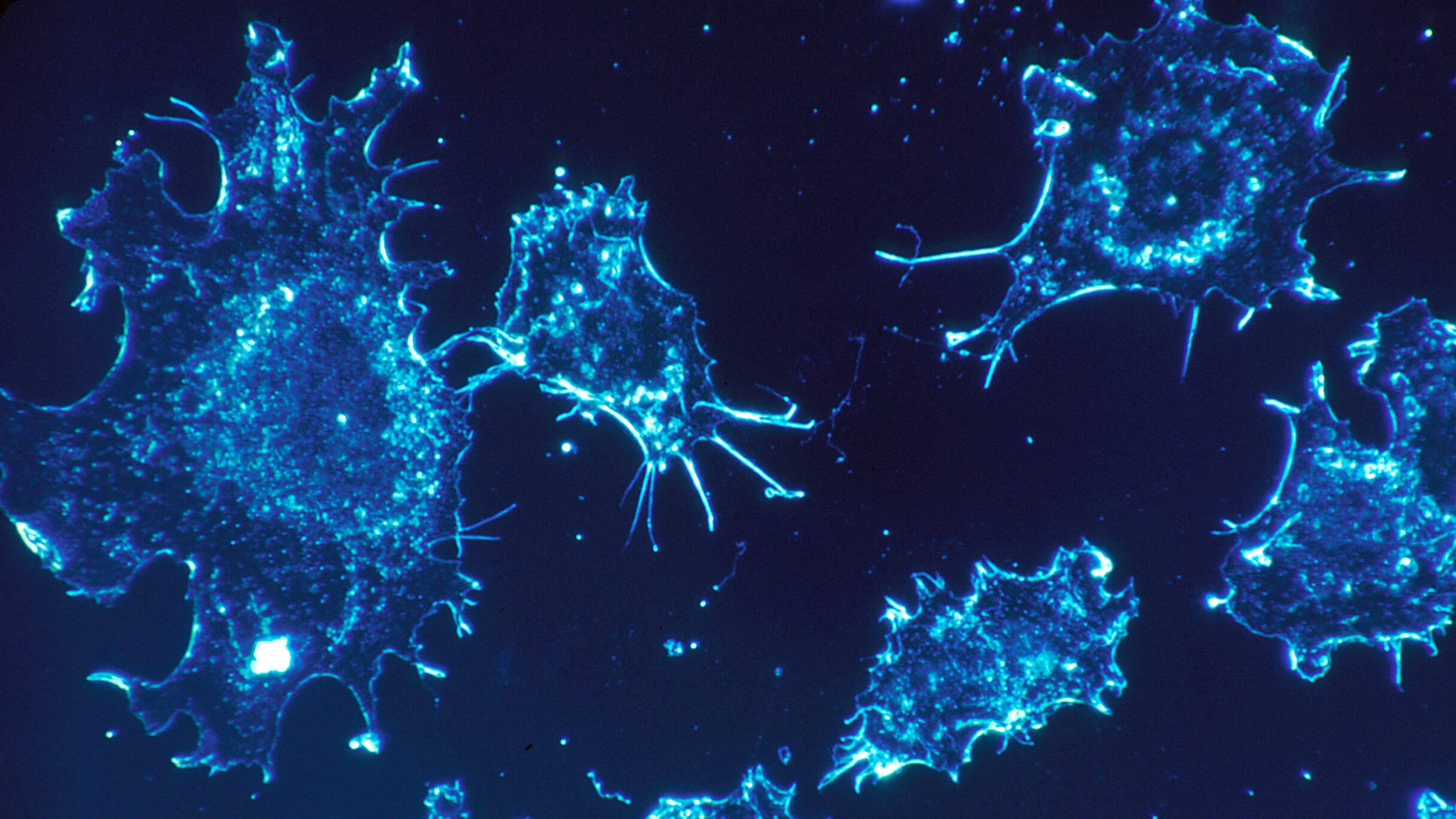
Image: Cultured cancer cells. Credit: Dr Cecil Fox, Wikimedia Commons, Public Domain
Details of a major, updated online resource to help biomedical researchers use the best small-molecule reagents for their experiments have been published.
The Chemical Probes Portal provides expert reviews of chemical probes, usually protein inhibitors, providing researchers with free expert advice on which tool compounds to choose for their experiments, and how best to use them.
And now a new paper, published in Nucleic Acids Research, updates the scientific community on the development of a greatly enhanced version of the Portal, as well as giving researchers a reference to cite when they have used it.
A biomedical conundrum
The poor selection and use of chemical reagents, most commonly protein inhibitors, was highlighted in 2015 by a large group of chemical probe experts as a major and widespread conundrum in biomedical research.
Common problems, which still continue today, include the use of flawed compounds that are not selective for the protein of interest – and may even be highly promiscuous, leading to erroneous research conclusions.
One solution was the Chemical Probes Portal, with chemical biology and drug discovery experts creating this online web resource with the aim of improving the quality and robustness of biomedical research, including drug discovery.
An enhanced Portal
Although the earlier Arrowsmith et al paper had announced the original launch of the Portal, which at that time was in an embryonic form, the new publication provides a specific reference for the much more comprehensive content of the greatly enhanced Portal.
The research community can now consult and cite the new paper, which also outlines the enhanced front- and back-end systems and processes that support the site and provide a better performance and user experience.
High-quality chemical probes are small molecules – including not only protein inhibitors, but also now degraders and other protein modulators – that can be used with confidence to ask questions about what functions particular proteins are carrying out within living cells.
Probes allow us to understand fundamental biological processes and also to elucidate disease mechanisms and develop potential treatments.
New probes
The latest version of the Chemical Probes Portal, based at The Institute of Cancer Research and funded by Wellcome, provides detailed information and expert reviews on more than 500 chemical probe compounds to help researchers study more than 400 human protein targets, which are implicated in a wide range of biological pathways and diseases, including cancers, diabetes, arthritis and neurodegeneration.
The new paper describes the latest features on the Portal, including many new compounds, as well as useful guidelines to support scientists in choosing the right inhibitors for their protein and using them appropriately.
Even a high-quality chemical probe is only useful when employed in the right way, particularly at the right concentration and ideally used alongside appropriate control compounds.
Scientists are also encouraged to use the improved Portal process to submit new compounds for review by the Portal’s large Scientific Expert Review Panel (SERP), as well as suggesting proteins of interest that could be covered.
Another new feature is the option to download the Portal database or a filtered selection of probes. Supporting all of this is new infrastructure, including a new database, which will allow the Portal to grow exponentially as new compounds are discovered and incorporated.
Expert review
The 200 SERP members are experts in chemical biology, pharmacology and medicinal chemistry review who volunteer to scrutinise and rate each compound, and also provide comments and recommendations about its application to interrogate protein targets.
New compounds are continually being added, and this number will increase as additional, high-quality compounds continue to be developed.
The Chemical Probes Portal is working closely with the Structural Genomics Consortium and Target 2035, an open science global movement established to drive the development of chemical and biological tools to study human proteins, aiming aspirationally to develop a tool for every human protein by the year 2035.
Choosing the right probe
Researchers across the world still use poorly characterised compounds, even when new, better compounds, are available. Using the wrong molecule, for example a broad kinase inhibitor like staurosporine rather than a selective inhibitor of the protein of interest, makes it impossible to understand what is happening in the cell, as multiple targets are affected at the same time. Starting with the wrong assumption about probe selectivity, will put all future research at risk.
Dr Susanne Müller-Knapp, Director of Operations at the Portal, and Chief Operating Officer at the Structural Genomics Consortium, Frankfurt, said:
“The 200 experts who comprise our scientific expert review panel make the Portal completely unique as an expert resource. Their comments provide critical information about how to use a particular compound, any issues to be aware of, or what extra data are needed before the probe can be used confidently in a particular experiment.
“This expertise and advice is offered free through our platform for any biologists looking to use an inhibitor or tool compound to interrogate the function of a protein.”
Professor Paul Workman, Harrap Professor of Pharmacology and Therapeutics at the ICR, and Executive Director of the Chemical Probes Portal, added:
“Chemical probes are powerful tools for understanding the functions of proteins and how to treat diseases, but used inappropriately in experiments they can lead to misleading or totally wrong conclusions.
“The Chemical Probes Portal is a free resource for the biomedical research community to provide expert guidance on the best available tools to use in experiments – those that meet criteria such as a high degree of selectivity for the desired protein, evidence of modulation of that protein’s function in living cells and absence of off-target toxicity.
“The new developments on the Portal will now further improve the selection and use of the best tools available for experimental research and thus increase the quality and robustness of biomedical research and drug discovery.”
comments powered by